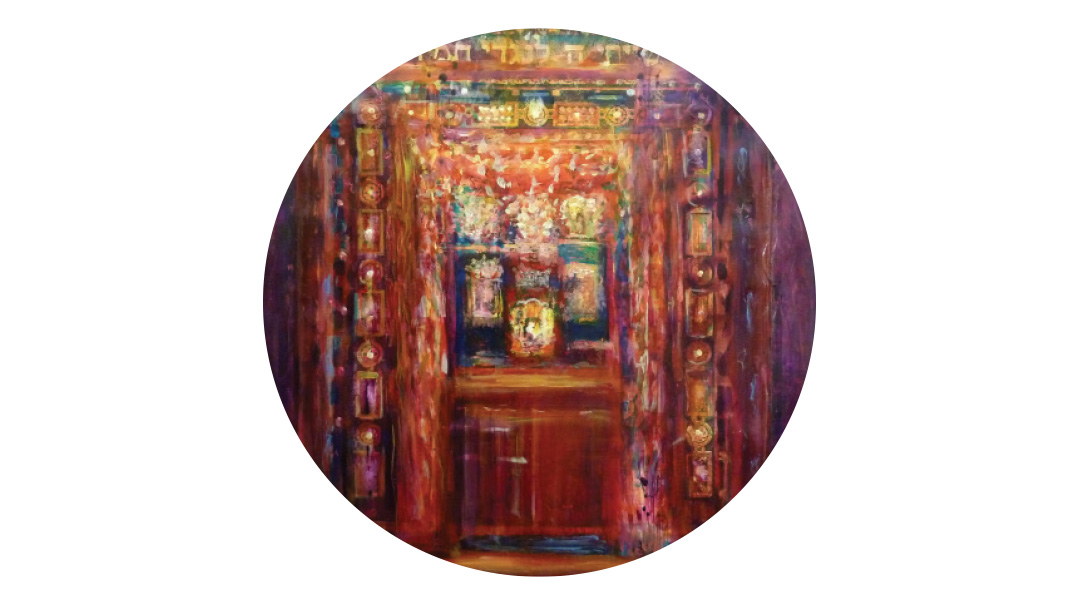Plugging In


We’ve got to find time to recharge ,Plugging In,We’ve got to find time to recharge
M y first cell phone plan was for 30 free minutes a month. Years ago a cell phone was a luxury item since the phone was expensive and each minute was very costly. I purchased the phone for the car in case of an emergency.
After a while my phone inexplicably stopped working. I called the cell phone company to complain.
“Is the phone charged?” the clerk asked.
“No ” I replied.
I look back with embarrassment at my naïveté. Once I charged the phone as instructed the phone became fully functional again.
In today’s world everyone knows that cell phones laptops and other electronic devices need to be charged regularly. If we forget to charge them the batteries will be drained and they simply won’t turn on. They won’t be able to perform the functions for which they were designed.
As we know everything in the physical world has a parallel in the spiritual world.
The Ribbono shel Olam created each of us with phenomenal kochos so that we can accomplish our purpose in the world. He also created us with the need to recharge ourselves — spiritually and physically — so that we’ll be able to continue accomplishing. If we keep going without recharging ourselves we’ll eventually drain our batteries and not be able to function properly.
Plodding Forward
So many of us in our quest to complete as much as we can every day never take the time to recharge ourselves spiritually. Who has the time to read something inspirational? Who has the time to listen to an inspiring speaker or attend a shiur? We keep plodding forward — doing and doing and doing. Without recharging ourselves however we can easily lose sight of the underlying meaning of all that we’re doing. We carry on by rote lacking enthusiasm and a sense of purpose. Even when we’re doing mitzvos and taking care of others we feel devoid of energy. Our batteries are drained.
We charge an electronic device by taking a cord connecting it to the device and plugging it into the outlet. Similarly we charge ourselves by finding that “cord ” that inspirational experience that will help us to plug in to the Ribbono shel Olam.
Built into the fabric of Torah are many such “cords.” The mitzvah of Shalosh Regalim for example requires Bnei Yisrael to go to Yerushalayim three times a year and bring korbanos in the Beis Hamikdash. The Shalosh Regalim experience was supposed to plug visitors into Hashem and recharge them. Before the people returned home the Kohanim would show them the Lechem Hapanim to encourage them to remain “warm” even after leaving Yerushalayim just as the Lechem Hapanim remained warm throughout the week.
Hashem commanded Bnei Yisrael to go to Yerushalayim to eat maaser sheini as well as maaser beheimah and neta revai. Rashbam explains that when the people saw the place of the Shechinah they learned to have yiras Hashem. A primary purpose of going to Yerushalayim to eat the maaser sheini was to provide an opportunity for Klal Yisrael to bask in the holy atmosphere and become inspired and recharged.
Nowadays we don’t have aliyah l’regel or maaser sheini but we have other mitzvos that can recharge us. Each Shabbos we stop our regular work for the purpose of renewing our emunah and reconnecting with Hashem. Yamim Tovim are called moadim meeting times. They are times when we are supposed to “meet” the Ribbono shel Olam and spend time with Him. Shabbos and Yom Tov are intended to recharge us.
For many women however Shabbos and Yom Tov carry with them so many extra responsibilities that they don’t recharge. What are they to do?
Every woman needs to find a way to recharge herself spiritually. What works for one person may not work for another. One person may be inspired by a shiur; another may prefer reading an inspirational article or biography. Another person may feel inspired by speaking to someone whom she looks up to. Someone else may just need some time alone to think. None of this is “extra” in our busy lives. Even if it’s just a few moments a day or a week we’ve got to find the time to recharge.
The first mitzvah that the Jewish People were given as a nation was Rosh Chodesh. HaKadosh Baruch Hu instructed Moshe to tell Klal Yisrael “Hachodesh hazeh lachem rosh chodashim — This month is for you the beginning of months” (Shemos 12:2). Rav Samson Raphael Hirsch translates this pasuk differently. The root of the word chodesh month is chadash new. (A month is called a chodesh because it is determined by the renewal of the moon.) Rav Hirsch explains the word chodesh in the above pasuk to mean renewal rather than month. Hashem is exhorting us: This renewal of the moon should be for you the beginning of renewals. Don’t just keep plodding along. Rejuvenate yourself. Recharge yourself.
A Message for Women
This message of renewal is especially relevant for women. Perhaps specifically on the day of Rosh Chodesh a special day for women Hashem is sending a message for women telling us: In the process of spending your life taking care of others don’t forget to recharge yourself. Take the time to renew yourself and reflect Hashem’s light just like the moon regularly renews itself and reflects the sun’s light. Just as the moon becomes brighter each night providing more light to the world when you recharge yourself you will become brighter providing more simchah for yourself and for those around you.
We need to recharge ourselves not only spiritually but physically as well.
How many of us take the time to eat properly exercise regularly and sleep the number of hours necessary for us to function optimally?
Most of us are so busy doing for others that we don’t take proper care of ourselves. Perhaps we can be convinced of the need to recharge spiritually — but to recharge physically? We may feel that we’re being selfish if we take care of our own physical needs. After all isn’t giving to others the measure of greatness? The world around us is focused on self-fulfillment and “me first.” Certainly Klal Yisrael doesn’t subscribe to that philosophy. If I don’t spend every moment taking care of others doesn’t that make me a lesser person?
Shlomo Hamelech addresses this in his words: “Gomel nafsho ish chassed — A person who gives to his nefesh his physical life-sustaining soul is a person of chesed ” (Mishlei 11:17).
Why? How can it be a chesed to take care of oneself?
Rebbetzin Tehila Jaeger quotes the Vilna Gaon who explains that if a person dedicates his life to chesed and is committed to doing mitzvos the acts that he does for his physical wellbeing and pleasure are considered mitzvos since his motivation is l’Sheim Shamayim. Even his eating is a mitzvah and is considered like a korban.
My mother-in-law Mrs. Rose Gibber a”h used to quote her mother Rebbetzin Genendel Mowshowits a”h who would tell her: “Take the time to finish eating breakfast [even if the children are calling you]. You’re making yourself into a healthy mother for your children.”
When we take the time to eat exercise or sleep we’re giving our family a wife and mother who is healthier more energetic and hopefully in a better mood that day. When we do something to take care of ourselves if we have in mind that we’re doing it to fulfill Hashem’s Will then our seemingly selfish act is regarded as an act of selflessness and avodas Hashem.
Would we ever consider the possibility that our cell phone could continue to function indefinitely without being recharged? Why then do we entertain the notion that we can go on day after day without being recharged?
During these summer months when life operates at a different pace and there may perhaps be opportunities for carving out some time for ourselves let’s keep in mind the imperative of recharging ourselves — both spiritually and physically. And let our efforts be the beginning of a yearlong habit of taking time out to plug in to the true energy Source of our lives.
Originally featured in Family First Issue 553. Rebbetzin Suri Gibber has been involved in chinuch banos for decades first as general studies principal in Bais Yaakov High School of Miami and for the past 15 years as principal of Bais Yaakov High School of the Twin Cities. She gives adult education classes as well.
Oops! We could not locate your form.







